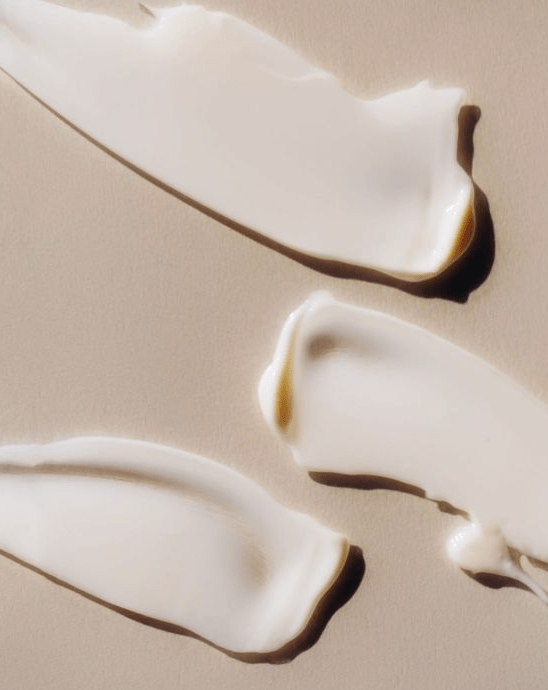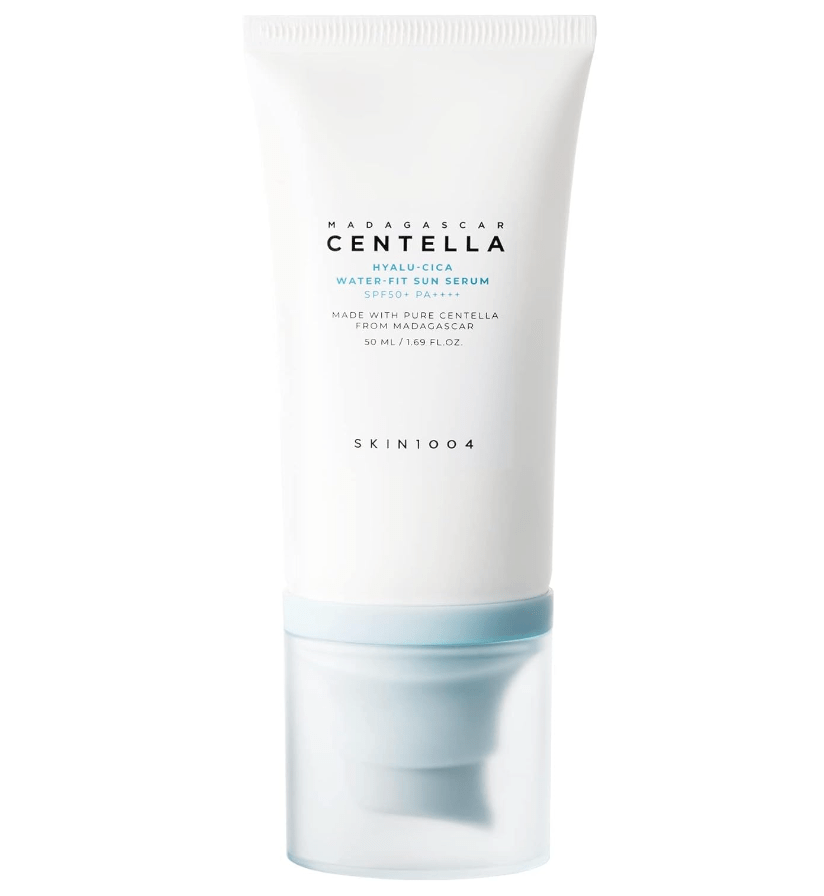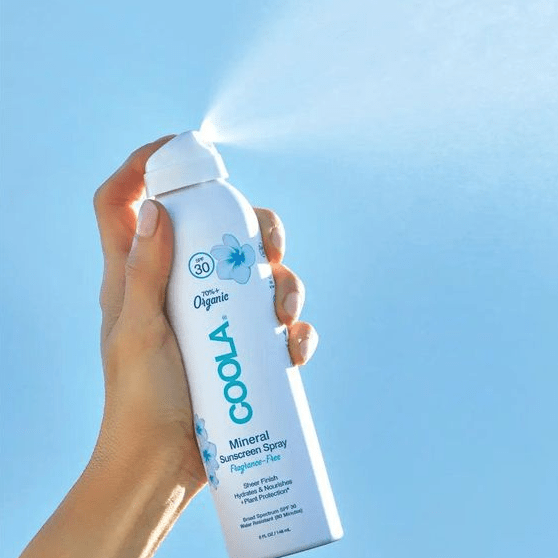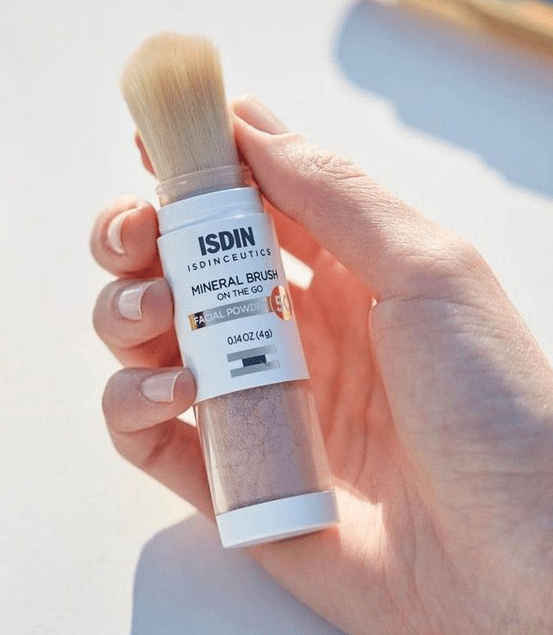This site contains affiliate links. I may earn a small commission, at no extra cost to you.
If you’re searching for the best sunscreen for sensory issues, you’re in the right place.
I’ve tried and tested so many different sunscreens over the years and rounded up my favourites.
Even better, I have both sensitive skin and acne prone skin, so these are good options if you have a similar same skin type.
Table of Contents
- 5 best sunscreens for people with sensory issues
- Other forms of sun protection for people with sensory issues
5 best sunscreens for people with sensory issues

It’s so hard to find good SPF protection if you hate the feeling of sunscreen.
It’s also super annoying that so many brands market their SPF as ‘lightweight’ when they’re really not.
I’ve rounded up my five favourites for different kinds of sensory processing disorders.
Sensory sensitivities vary hugely from person to person, so I’ll do my best to describe each sunscreen.
Hopefully you’ll be able to find a sunscreen that feels light touch and pleasant.
These are also all suitable for both a child’s skin or autistic adults, for example. The entire family should be able to use these easily!
Best mineral sunscreens for sensory disorders

The tacky feel of sunscreen is made 100x worse with mineral sunscreens.
Sunscreens were always sticky, but mineral sunscreens are chalky, pasty and thick!
Mineral sunscreens require either zinc oxide or titanium dioxide to provide sun protection, and they can be very ghostly looking.
It’s therefore nearly impossible to find a good mineral sunscreen for sensory issues.
Despite this, many people prefer them because they tend to be less irritating on sensitive skin.
However, I can really recommend the SOS SPF 50 as a best sunscreen for sensory issues. [aff link]
It feels like almost like a dry-touch moisturiser, and provides broad spectrum protection (both UVA and UVB).
The only major downside of this product is that it’s a little expensive, at £15 for 50ml (or roughly £30 per 100ml).
This would be a great sunscreen for sensory issues if you like:
- Some hydration or the product feeling like a moisturiser without it being heavy or sticky
- A ‘smooth’ application feeling that isn’t overly smooth (e.g. silicone-y)
- Sinks into nothing on the skin
- No added fragrance but has a barely noticeable, bland scent
This sunscreen also doesn’t provide a heavy white cast, although I’m quite pale so not the best test.
From what I can see, though, it looks pretty transparent on most skin tones.
Best sensitive sunscreen for sensory issues

If you have sensitive skin but prefer a sunscreen made mostly of chemical ingredients and filters, this one might be ideal for you.
To be clear, all sunscreens are made of chemicals, but the SOS one above uses a few ‘mineral’ filters.
The Skin1004 Madagascar Centella Hyalu-Cica Water-Fit Sun Serum exclusively uses chemical UV filters. [aff link]
This is a go-to sunscreen for so many autistic people.
It has a lightweight gel moisturiser texture that makes for easy reapplying without feeling super heavy.
Once it’s on your skin, it just sinks in within a few minutes, which makes it ideal for sensory processing issues.
This would be a great sunscreen for sensory issues if you like:
- Adding moisture to the skin without feeling like it’s ‘sitting on top’ of your face
- Sunscreen application that doesn’t require looking in a mirror
- No scent or white cast
- Easy application process, and easy reapplying
Best oily skin sunscreen for sensory issues

If you have oily skin or just prefer something that doesn’t feel so creamy, Paula’s Choice Youth Extending Fluid is great.
I’ve recently discovered this one and am loving it.
As the name suggests it’s a lightweight, runny fluid type of sunscreen.
I love it because it provides a lot of protection from ultra violet radiation, without feeling like you’re wearing anything.
The active ingredients are US chemical filters such as avobenzone and octinoxate.
This would be a great sunscreen for sensory issues if you like:
- The least creamy of the formulas, feels most like water
- You don’t mind runny sunscreens (much thinner than traditional sunscreen lotion)
I don’t feel there’s a white cast with this sunscreen, either! Which is amazing.
Best clear sunscreen for sensory issues

If the white appearance of sunscreen lotion is particularly triggering, the Glossier Invisible Shield SPF50 is impressively transparent.
Do note, though, this is the new version with pink bottle and orange lid.
I haven’t tried the old version so can’t say if it’s a massive sensory issue.
This sunscreen is completely clear. It would be great for sensory-sensitive kids who are worried by the ‘white paste’ look of suncream.
However, it does have quite a silicone-y feel when it’s being applied.
It spreads so smoothly due to the silicone content, but the silicone feeling goes away once it has sunk in.
This would be a great sunscreen for sensory issues if you:
- Have had sensory experiences with silicone and don’t mind the sensation
- Want something totally transparent so no white cast
- Want a great base for makeup! This gives me such a flawless base, it’s like a primer
Best all-around sunscreen for sensory issues

This last one is the Isntree Onion Fresh Fluid SPF50.
I know what you’re thinking – onion??
Luckily it smells absolutely nothing like onion, it simply uses some onion bulb extract in the ingredients because it’s soothing.
This sunscreen protects against harsh UV rays (both UVA and UVB rays) without being an awful sensory stimuli.
I would liken it most to the Paula’s Choice, simply because it’s a fluid texture.
It has no added scent and a very faint smell overall.
Once it’s applied, it sinks in and disappears after a few minutes. It is slightly more moisturising than the Paula’s Choice.
This would be a great sunscreen for sensory issues if you:
- Like the runny, fluid texture
- Don’t mind the Onion derived ingredients
- Like a lightly moisturising feeling
This also provides no white cast, thankfully, and a nice base to put makeup onto.
Sunscreens to avoid for sensory issues

Spray sunscreen is often portrayed as the best sunscreen for sensory issues.
However, the application method is really important when it comes to getting proper protection.
Spray sunscreen certainly seems lighter than cream, but you need to make sure you’re applying enough.
Often times people will apply less spray sunscreen than a cream, so you might not actually be protected.
To use it properly, make sure to rub it in well after you’ve spray it on to the body.
Why you should avoid aerosol sunscreens

Aerosols are even worse than spray sunscreens, simply because they’re mostly gas in a bottle!
As soon as you spray it, lots of the sunscreen (and gas) gets carried away by the wind.
Very little of it lands on your face, and it’s near impossible to get an even layer of protection.
One of my favourite beauty creators, Lab Muffin, did a whole (amazing) study on this herself.
It’s a shame because they feel so lightweight, but sadly that’s because they’re too good to be true.
What about brush-on mineral powder sunscreen?

I can understand why powder sunscreen is recommended as autism friendly, however I personally would avoid it.
It’s been proven many times that the sheer amount of product you need to use is way more than what you’d expect.
Simply put, it’s just not going to protect you like a cream will.
Other forms of sun protection for people with sensory issues

It’s easy to forget that there are other ways to protect yourself from UV radiation.
Here are a few items that can save you from uncomfy sensory experiences on a hot day:
- Wide-brimmed hat: hats are ideal to protect your face and scalp at the beach or in the city
- Long sleeve tops or rash guards: lightweight versions exist for those who prefer modesty
- UV arm sleeves and gloves: you can buy these easily on Amazon
- UV umbrellas: a regular umbrella with proper UV protection
This was the Best Sunscreen for People with Sensory Issues. You may also like:
- The Best SPF for Closed Comedones and Acne-Prone Skin
- The Best Moisturisers for Clog Prone Skin
- Dermatica vs Skin and Me Review: Which is Better for Acne?